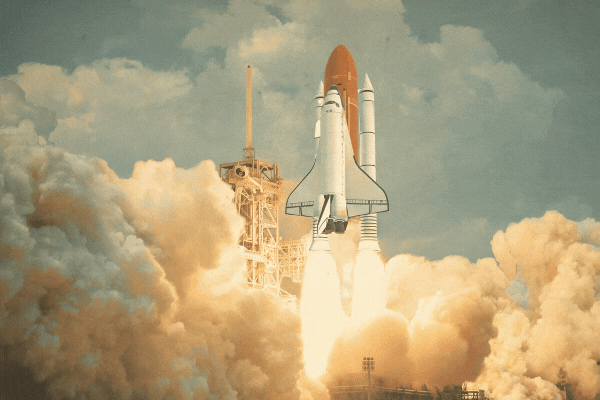In April of 1981, NASA launched Columbia (STS-1), marking the dawn of the Space Shuttle era. As the first reusable spacecraft, Columbia redefined space travel, blending the power of a rocket with the return capability of an airplane.
Unlike previous space missions, which relied on disposable rockets, Columbia was designed to launch, return, and be used again, a groundbreaking step toward making spaceflight more sustainable and cost-effective.
Its successful mission proved that a new era of human space exploration had begun, one that would dominate NASA’s efforts for the next 30 years.
The Shuttle That Changed Everything
Before Columbia, space travel was a one-and-done affair, rockets launched into space, but their components were discarded after each mission. NASA’s Space Shuttle Program aimed to change that by creating a spacecraft that could be launched, landed, and reused.
Columbia’s maiden flight, STS-1, was a bold test. Piloted by astronauts John Young and Robert Crippen, the shuttle launched from Kennedy Space Center, orbited Earth 36 times, and safely landed at Edwards Air Force Base in California two days later.
It was a high-risk mission, Columbia’s heat-resistant tiles had never been tested in a real reentry. But when it glided smoothly onto the runway, it proved the concept: a reusable spaceplane was possible.
Columbia’s Legacy in Spaceflight
Columbia’s success launched an era of innovation that shaped the future of space exploration. Over the next three decades, the shuttle program played a critical role in assembling the International Space Station, deploying and servicing the Hubble Space Telescope, and launching satellites and interplanetary probes.
It also expanded access to space, carrying a diverse range of astronauts, scientists, and engineers beyond Earth’s atmosphere. The shuttle’s design allowed for complex missions that had never been possible before, from conducting cutting-edge experiments to repairing spacecraft already in orbit.
However, Columbia’s story is also marked by tragedy.
In 2003, during its 28th mission, the shuttle broke apart upon reentry, claiming the lives of all seven crew members.
This devastating loss led to significant safety overhauls and ultimately contributed to the decision to retire the shuttle fleet in 2011. Yet, its pioneering spirit lives on in today’s efforts to create next-generation spacecraft, from SpaceX’s Starship to NASA’s Artemis Program, which aims to return humans to the Moon and push onward to Mars.
The Wrap
Forty-four years ago, Columbia proved that reusable spaceflight was possible, reshaping how humanity reaches for the stars. Its legacy continues today, influencing modern spacecraft and deep-space exploration.
Though the shuttle era has ended, its impact endures in every new mission that builds upon its innovations, carrying humanity further into the cosmos.
Go Deeper –> First Space Shuttle Launch – This Day in Tech History






